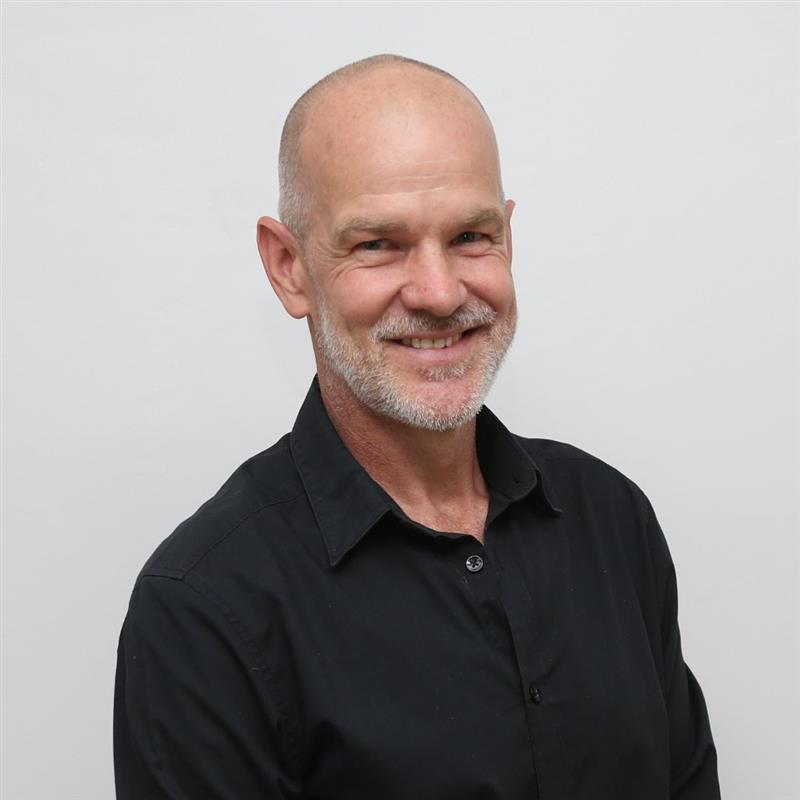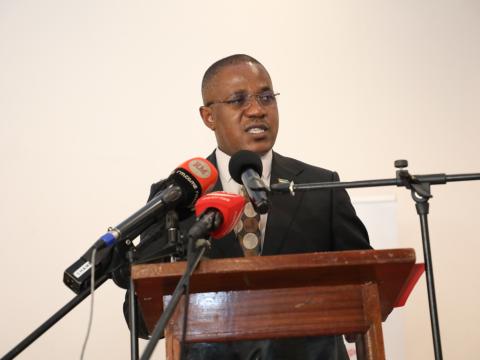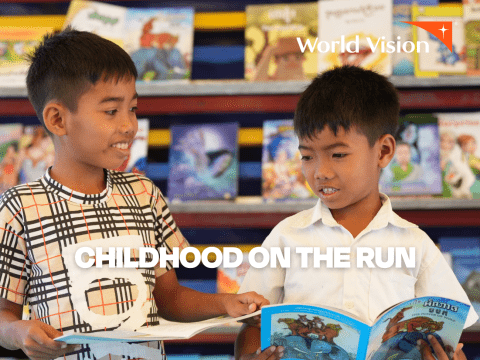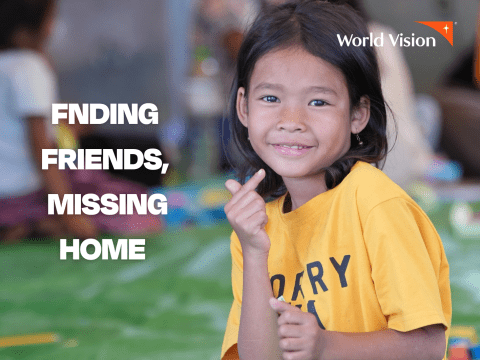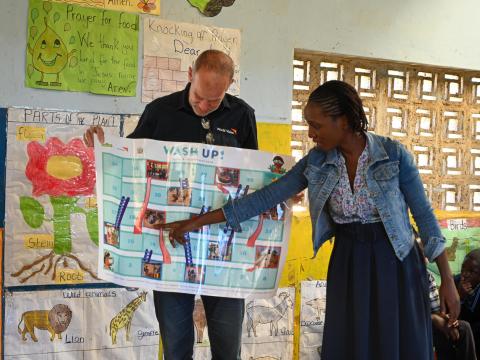
True Transformation Begins When We Listen First
Matthew Pickard, Regional Leader, Southern Africa, highlights how true transformation in education and health emerges when communities lead. He urges policymakers and NGOs to listen first and invest in community-driven solutions that foster lasting change.
In the heart of Zambia’s Chongwe District, I met Julia Mwewa—a teacher whose passion for storytelling is transforming her classroom into a sanctuary of learning. Her self-written tales, nestled among phonetic cards and borrowed books, are more than stories—they are seeds of change. Julia teaches at Katoba Primary School, where she has created a vibrant reading corner filled with books, games, and even her own handwritten stories. On the shelf, I discovered stories of everyday life from her community—painstakingly written and displayed with pride alongside formal printed books and other reading materials.
It is not an isolated effort; it is part of World Vision’s Unlock Literacy model, implemented under the Zambia Reading for Education and Development (ZREAD) programme. In a country where only 12.7% of Grade 4 learners meet minimum reading proficiency, such innovation is crucial.
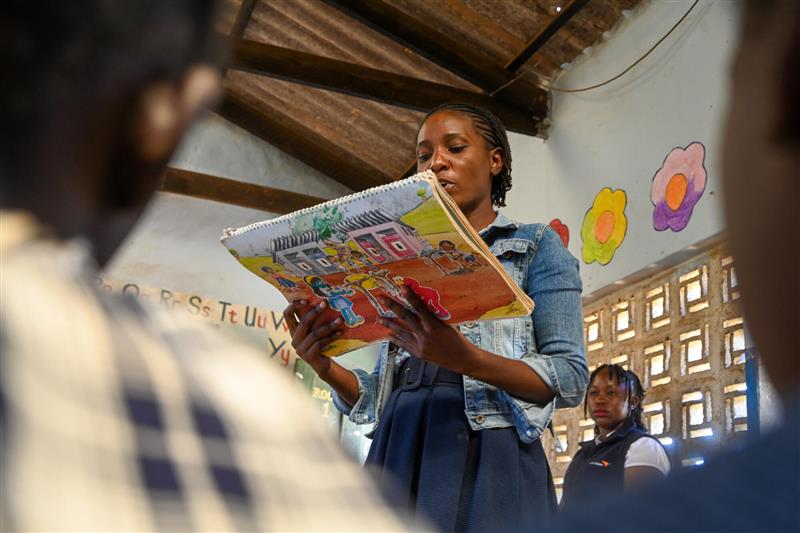
Education and Literacy: Building Futures One Word at a Time
Katoba Primary demonstrates what happens when local educators are empowered. Julia’s initiative doesn’t just teach reading—it nurtures confidence and curiosity. This is the essence of sustainable development: when communities lead, change endures. Through ZREAD, teachers receive training and classrooms are equipped with books with the aim that children, such as 11-year-old Minim and 9-year-old Yvonne, discover the joy of learning.
And this impact goes beyond the community. In July, at the African Union–UNICEF High-Level Workshop on Scalable Foundational Learning and Numeracy (FLN), Zambia’s Ministry of Education recognized World Vision’s partnership in advancing literacy nationwide. The Zambian government recognised World Vision’s “strong and consistent support” in foundational learning.
From nationwide reading campaigns to one-hour Catch-Up sessions rolled out across nine provinces, our partnership is helping thousands of children read and write confidently.
This commitment aligns perfectly with the African Union’s newly adopted Continental Education Strategy for Africa (CESA) 2026–2035, which positions foundational learning as a critical pillar. Even more exciting, World Vision has been invited to join the African Union’s Continental Working Group on Foundational Learning and Numeracy (FLN), giving us a seat at the table to shape policies and influence best practices for every African child.
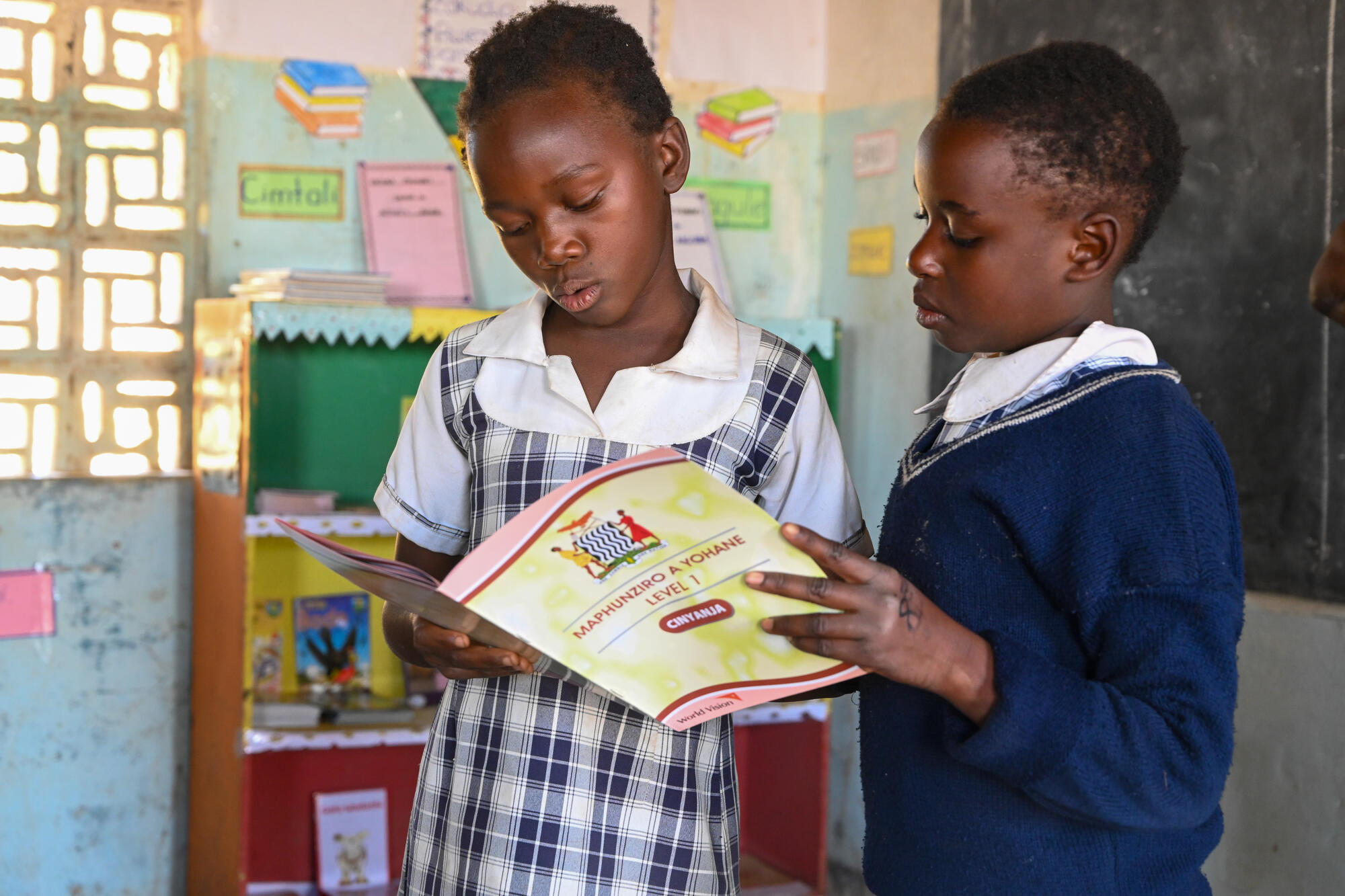
When Citizens Speak, Change Follows
I also spent time with the Citizen Voice and Action (CVA) group in Katoba—18 local leaders who have been working tirelessly since 2018 to support government service providers in improving the quality of health services in their community.
Zambia continues to face challenges in maternal and child health. According to the Zambia Demographic Health Survey, maternal deaths have reduced from 278 per 100,000 live births in 2018 to 187 per 100,000 in 2024. Similarly, neonatal mortality declined from 24 per 1,000 live births in 2018 to 17 per 1,000 in 2024. While these improvements are significant, the challenge remains high.
The CVA group, trained by World Vision, left a strong impression on me. Since 2018, these local leaders have mobilized their community to improve health and education services.
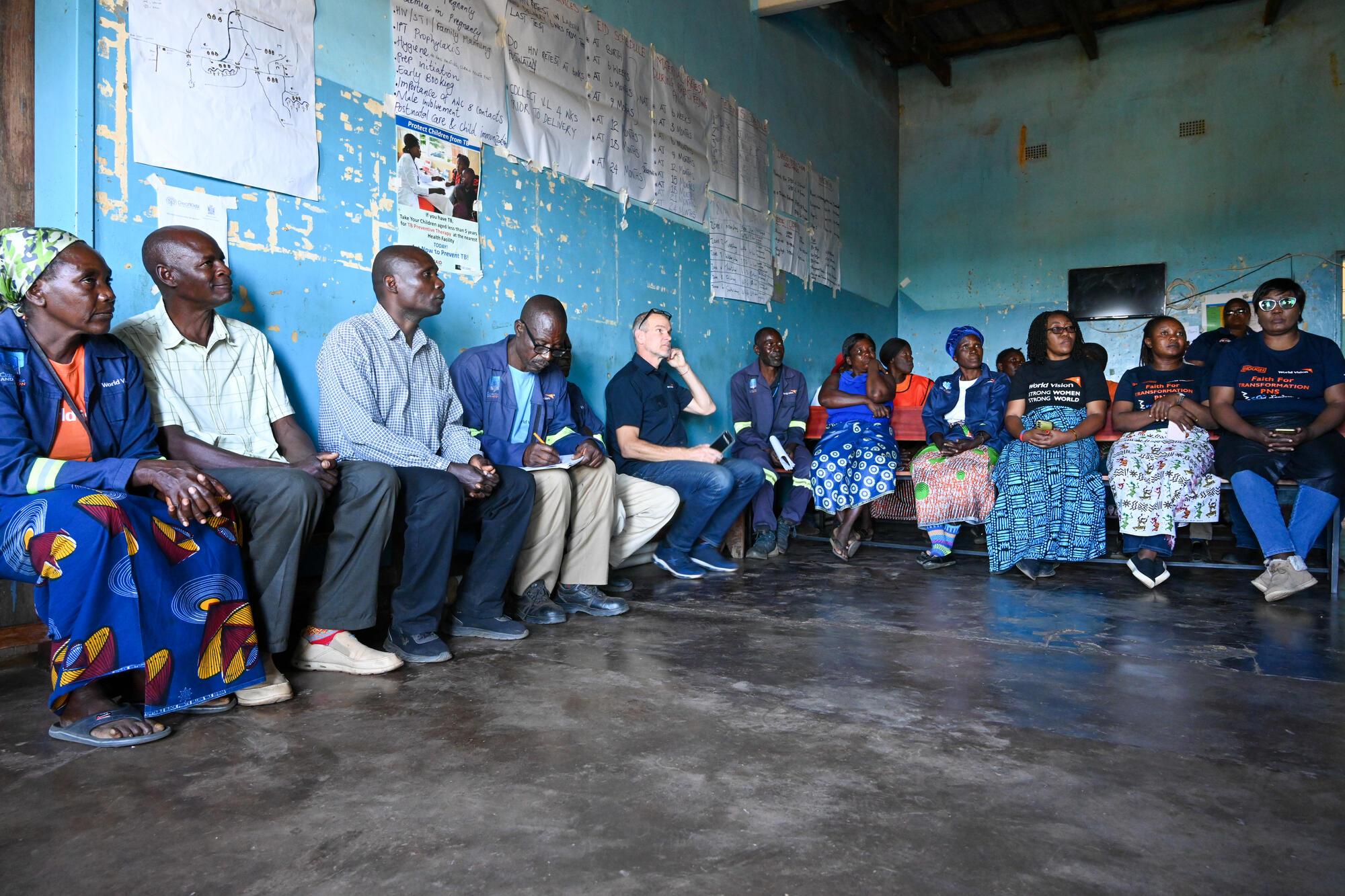
The results speak volumes:
- Health staff housing expanded from 2 units to 9
- A new maternity annex was constructed, funded through the Constituency Development Fund
- A maternity waiting shelter has been established, ensuring safe deliveries for expectant mothers
- 77 out-of-school children returned to classrooms
Through community dialogues, the group identified the need for better staff housing and maternal health facilities. They successfully lobbied for increased staff housing at the local health post and secured local funding for a maternity annex and waiting shelter—providing expectant mothers with safe accommodation before delivery. This achievement underscores the potential of community-driven advocacy to transform essential services.
The CVA process works because it brings everyone together to recognize their agency and responsibility to improve services. This is not about pointing fingers at the government. As the saying goes, “He who points the finger has three fingers pointing back at him.” We all share responsibility for creating better systems—and we all have a role to play.
The Power of Local Leadership
What I witnessed in Katoba challenges a common misconception: that transformation requires external solutions. It does not. It requires listening, trust, and partnership. Our role as development practitioners is not to prescribe answers but to create space for local leaders to drive change.
Walking Forward, Together
I left Chongwe both humbled and hopeful, humbled by the strength and innovation of the people I met; hopeful because I saw what is possible when partnership meets local leadership. As CVA leader Dennis Chulu told me: “When communities come together and speak up, they drive their own development.” And that’s exactly what I saw in the Katoba community-led accountability in action that builds better services.
To policymakers, donors, and NGOs: invest in approaches that unlock local leadership. Fund initiatives that strengthen community voices and empower educators like Julia. Support mechanisms like Citizen Voice Action that enable citizens to hold systems accountable.
Transformation begins when we listen first—and act as partners, not providers.
The author is the Regional Leader for the Southern Africa Region with more than 25 years of experience in international development across Asia and Africa. He has served in various leadership roles for an array of INGOs, championing strategic initiatives to strengthen operational excellence and empower teams.
